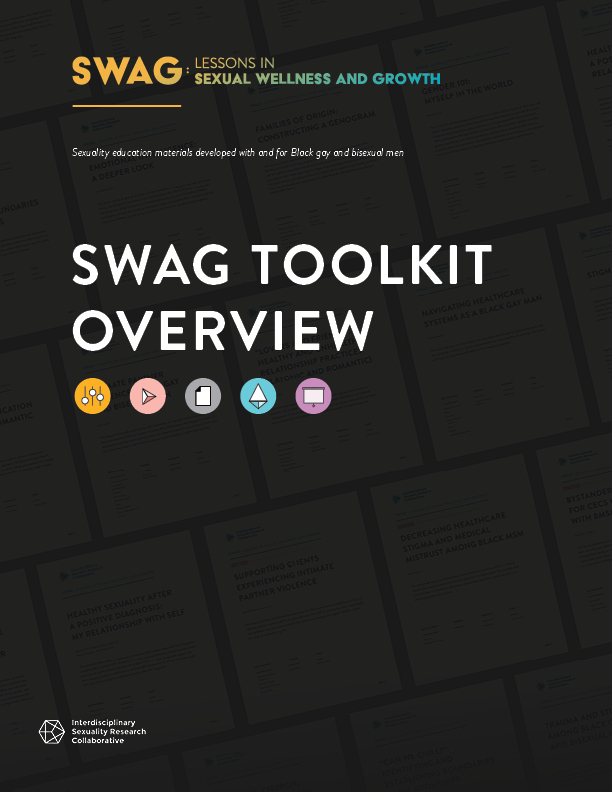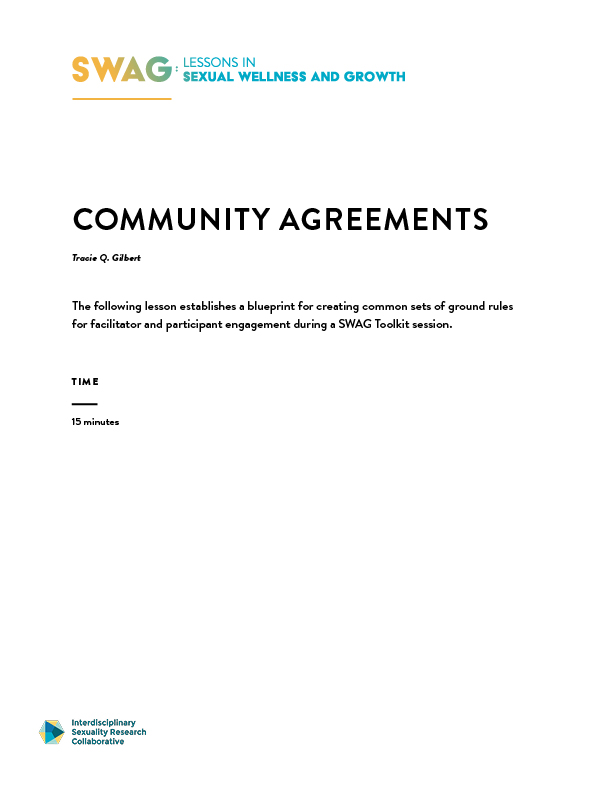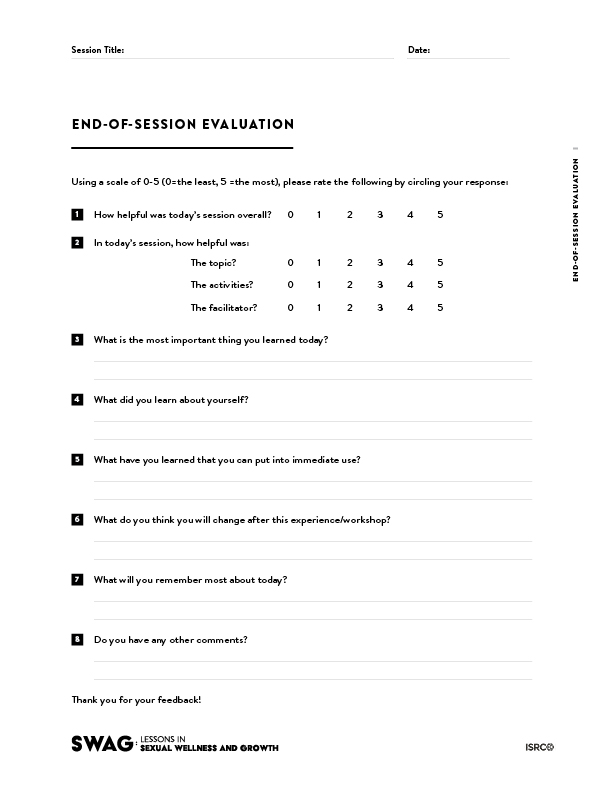Frequently Asked Questions
I just found the SWAG Toolkit. Where should I start?
There are several different places you can start with the SWAG Toolkit. If you are pressed for time, we recommend finding a lesson plan that addresses topics your group is interested in, review the lesson plan, and run the lesson to your group. If you have more time, we recommend visiting the Using the Toolkit section of this site. If you are interested in the nuts and bolts of the toolkit, our downloadable SWAG Toolkit Overview has details regarding our development process of the lesson plans.
My group isn’t engaged with the lessons; how can I get more discussion?
There can be many reasons why a group isn’t engaged with lessons.
Firstly, is the meeting taking place in a good environment? Is there enough space, is there a/c, is the space easy to get to for your group members? Discomfort with a space can hold people back from feeling safe enough to be open and share.
Secondly, were you able to prepare and review the lessons beforehand? Group members will notice unprepared facilitators and may decide not to engage. Take some time and go over the material and plan questions or discussions the group could have.
Finally, is there something going on in the world or the community that is more pressing? If there is something big going on your group might benefit from talking about that than the lesson plan.
I’m worried about not being able to answer my group’s questions. How do I prepare for knowledge focused lessons?
You do not need to have all the answers when you run your session. However, if a question comes up about something you do not know, it is important to acknowledge that you do not know and offer to find out and report back. The lesson plans do have trainings on some basic topics for CECs and the SWAG website has resources, but you may need to use your network to find more detailed answers.
Since I am a part of the community how do I balance that with my role as a facilitator?
It can be challenging to both serve and be a part of a community, but solid boundaries can help reduce some of that stress. Do not run groups with people you are friends with or dating as those relationships can unbalance group dynamics. Do not talk about group work when in the community. Avoid community drama, and if you feel like you need to step away for your own well-being, talk to your supervisor to switch out facilitators or come to a solution.
What makes a good facilitator?
The SWAG Toolkit is less rigid than other lesson plans you may have run. While there are still knowledge and skills trainings in the lesson plans, our goal is for the lessons to facilitate connections and foster support among Black MSM.
This means that you will be discussing sensitive issues for individuals and the community. It is important to be empathic and reflectively listen to your group, both what they say and what they mean. You should seek clarification when you have a question and be willing to share power with group members. You should be flexible in the lessons. If you do not cover all of the material in a lesson or if the group begins discussing another topic, that is okay. As long as the group is discussing issues related to Black MSM, members can continue to develop.
Finally, be sure to take care of yourself. If you are too tired, too stressed, or unprepared the meetings may not be as beneficial. It is just as important to look after yourself as it is to support others.



